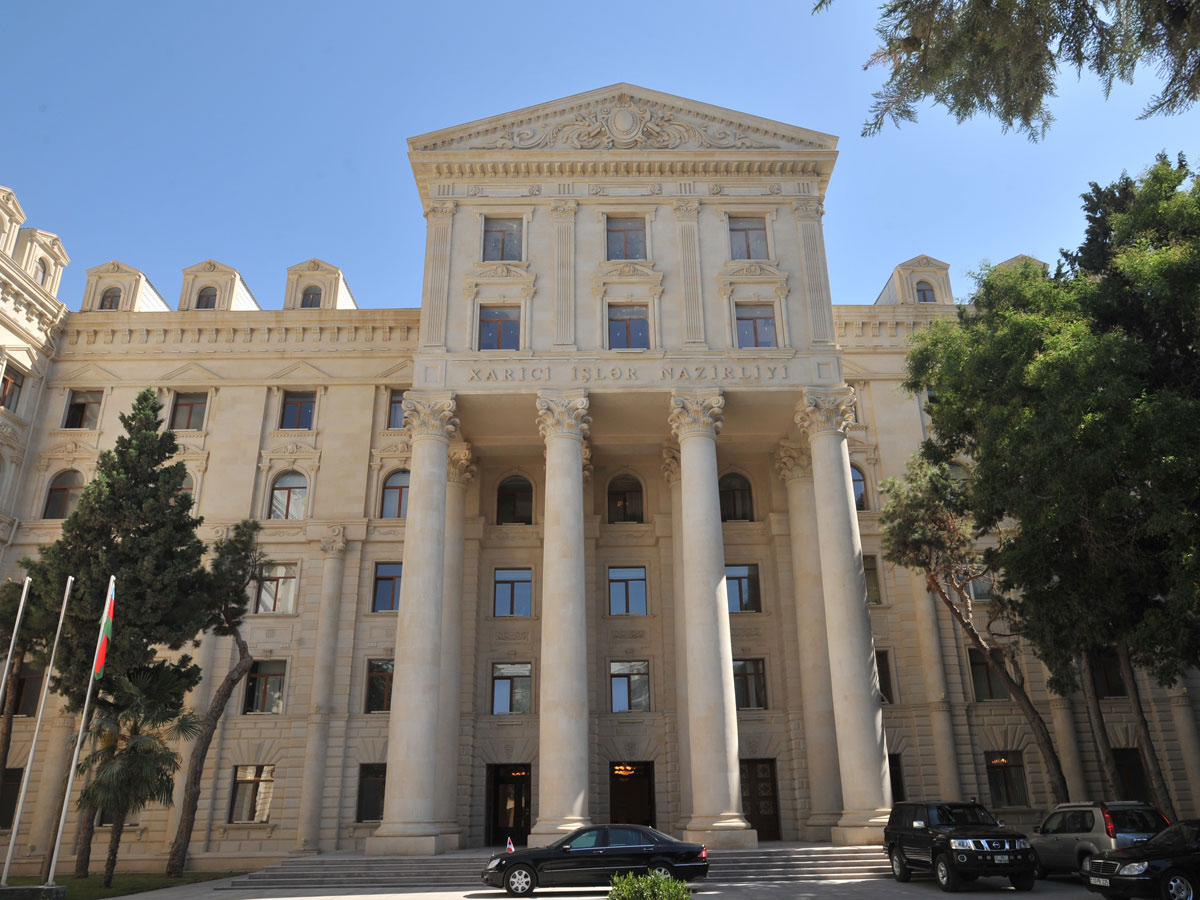Baku, Azerbaijan, April 6
By Seba Aghayeva - Trend:
The allegations of Armenian Foreign Minister against Azerbaijan are contradictory to the realities of the negotiation process. It is yet another helpless attempt to mislead the international community. Hikmat Hajiyev, Spokesperson of MFA, commented interview of Armenian FM to "International Affairs" magazine on April 6.
As it was declared by the OSCE Minsk Group Co-Chairs on numerous occasions the current status quo is unacceptable. The aggression and occupation of Armenia against Azerbaijan constitutes the base of current status quo. For this reason the unacceptable status quo, first and foremost, shall be changed with the de-occupation of Azerbaijan's occupied territories by Armenia. In May 2014, OSCE Minsk Group Co-Chair from the United States James Warlick, as supported by other MG Co-Chairs, presented six point plan for the resolution of conflict. The major component of this plan is the liberation of occupied territories of Azerbaijan by Armenia.
Notwithstanding the insistent calls of OSCE Minsk Group Co-Chairs Armenia refuses to start working on Comprehensive Peace Agreement.
We would also like to remind Armenian Foreign Minister, who distorts the statements and calls of OSCE Minsk Group Co-Chairs that as it was written on Budapest document on mandate of OSCE MG Co-Chairs dated March 23, 1995 Co-Chairs will be guided by the UN Charter, Helsinki Final Act and the UN Security Council resolutions in their activities.
The resolutions of the UN Security Council reaffirm the territorial integrity and sovereignty of Azerbaijan and the Nagorno-Karabakh as part of Azerbaijan and underlining an inadmissibility of use of force for acquisition of territories demand immediate, unconditional and full withdrawal of occupying forces from all occupied territories of Azerbaijan.
Although it is supported by the OSCE Minsk Group Co-Chairs, contrary to the principles of humanism Armenia refuses exchange of information on the fate of missing persons. As an outcome of Armenian aggression against Azerbaijan 4000 more Azerbaijanis are considered missing persons. Most of them have been massacred by Armenia and have been buried in mass graves in Armenia and in the occupied territories of Azerbaijan. Through the modern forensic and DNA analyses their identities can be determined and consequently, families can be informed about their fate.
The leadership of Armenia bears responsibility for the ongoing situation. The Armenian leadership with its pursued destructive policy once again proves that Armenia is not interested to bring peace, stability and predictability to the region.
The conflict between the two South Caucasus countries began in 1988 when Armenia made territorial claims against Azerbaijan. As a result of the ensuing war, in 1992 Armenian armed forces occupied 20 percent of Azerbaijan, including the Nagorno-Karabakh region and seven surrounding districts.
The two countries signed a ceasefire agreement in 1994. The co-chairs of the OSCE Minsk Group, Russia, France and the US are currently holding peace negotiations. Armenia has not yet implemented the UN Security Council's four resolutions on the liberation of the Nagorno-Karabakh and the surrounding regions.






